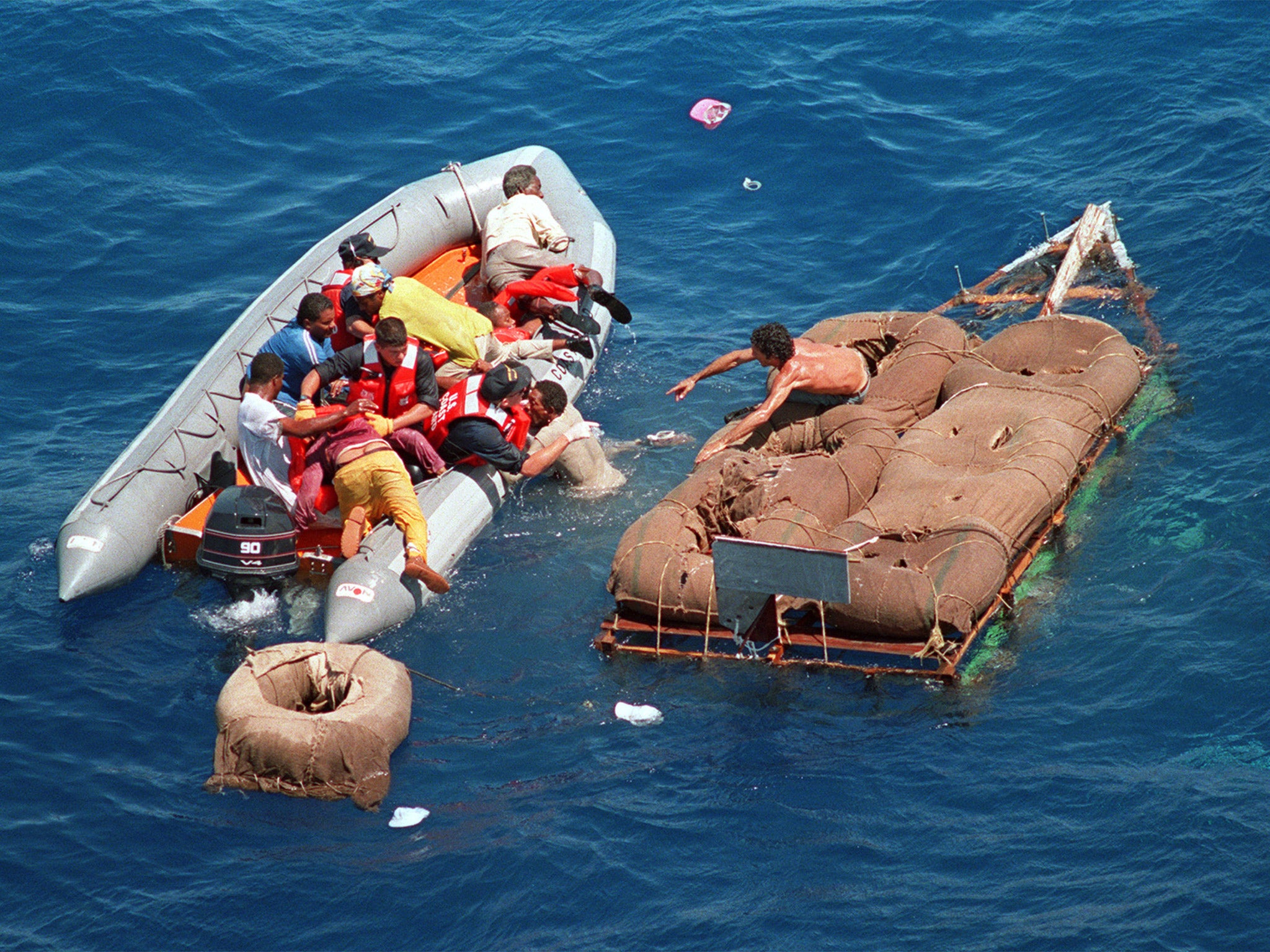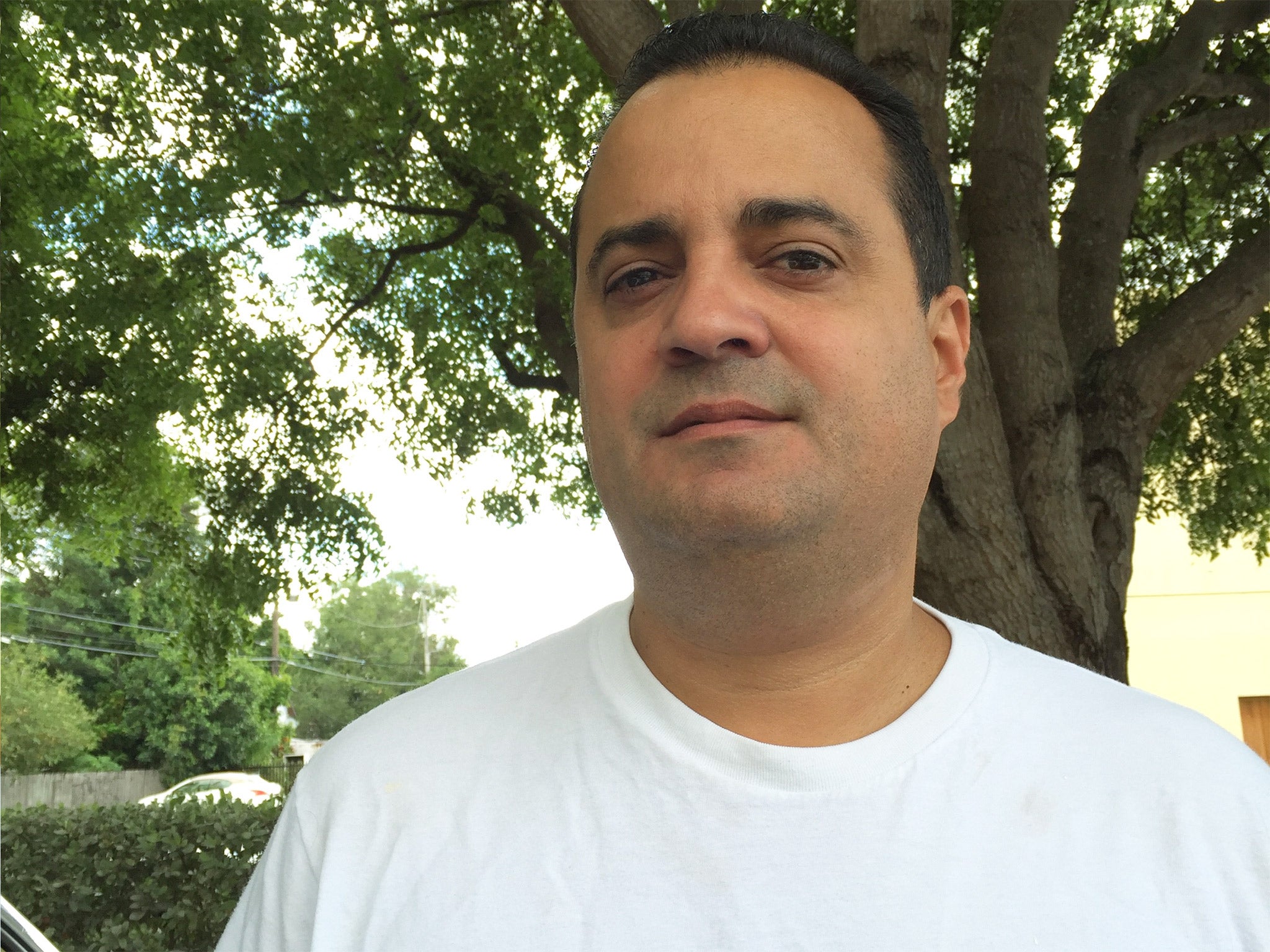US-Cuba relations: Cuban refugees amazed at plans to restart ferry services between the two nations
Some are against the move, but for Alex Dias - who came to America on a makeshift raft 23 years ago - it is a chance to return, this time on a seagoing vessel

Your support helps us to tell the story
From reproductive rights to climate change to Big Tech, The Independent is on the ground when the story is developing. Whether it's investigating the financials of Elon Musk's pro-Trump PAC or producing our latest documentary, 'The A Word', which shines a light on the American women fighting for reproductive rights, we know how important it is to parse out the facts from the messaging.
At such a critical moment in US history, we need reporters on the ground. Your donation allows us to keep sending journalists to speak to both sides of the story.
The Independent is trusted by Americans across the entire political spectrum. And unlike many other quality news outlets, we choose not to lock Americans out of our reporting and analysis with paywalls. We believe quality journalism should be available to everyone, paid for by those who can afford it.
Your support makes all the difference.When Alex Dias opened his paper over coffee at Versailles, a favourite spot for Cuban-Americans in Little Havana, he devoured the top story. Ferry services to and from Cuba will to resume after more than 50 years, it read.
“I saw the picture of the big boat and said, ‘Wow!’” he said. Many Cuban-Americans became emotional after hearing of the decision to issue licences to at least five ferry companies to offer services – the latest step by the US towards normalising relations with Cuba.
Few had better reason to be amazed than Mr Dias who, 23 years ago, came to America by sea – on a makeshift raft. There were no tickets or baggage allowances when he and 20 friends clambered aboard their dangerous vessel one night in 1992 near the Cuban city of Isabella. It was made, he recalls, of wood, chunks of Styrofoam and inflated lorry inner tubes. “We were lost for four days before we were rescued by the US Coast Guard, thank God,” he told The Independent. “Otherwise we would never have made it.”

They were a few miles from Key West, Florida, when picked up. Today, Key West is one of the points that ferries could soon be sailing from together with Miami and Fort Lauderdale, assuming the operators can get permission from the Cubans.
Until the US Congress ends the embargo on Cuba completely, only Americans who qualify under 12 categories – those with family members in Cuba included – will be able to take them.
For old-timers who left Cuba soon after the Castro takeover, such as Gonzalez Lopez, 78, the resumption of ferry links is just another part of a rapprochement policy begun by President Barack Obama they consider criminal. They see no wisdom in doing business with Cuba while the Castros remain in charge. “Who is going to want to go to Cuba, communists?” Mr Lopez asked. “Well, maybe Obama will go, because he is a communist. They will regret this, I am telling you.”
But attitudes are different among most Cuban-Americans who were either born in the US to exiled parents or came from Cuba much later on. That includes Mr Dias, 45, who became a US citizen and was later able to bring over all his family. Today, he has a jewellery shop in Miami.
“I think more exchanges with Cuba can only be for the better,” he said. “For the people of Cuba I think it’s going to be a good thing.” Even so, like Mr Lopez, Mr Dias doesn’t think the Cuban regime is to be trusted. “The problem is that you are negotiating with people who don’t have common sense.
“They fool, they lie and cheat and make promises about a lot of things and do nothing,” he said. “But in principle at least this is a good thing.”
Finalising plans won’t be easy, but some of the companies say they could be sailing within weeks. Mr Dias’s memories of travelling those waters are of fear of death. But does he plan to do it again, this time on a seagoing vessel? “I do want to, yes, I will.”
Join our commenting forum
Join thought-provoking conversations, follow other Independent readers and see their replies
Comments